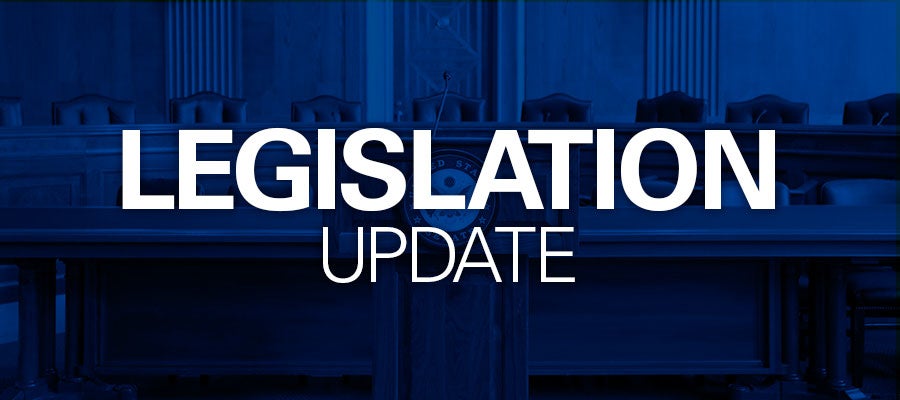phloydius
Veteran Member
White House to tell U.S. agencies to prepare for first government shutdown of pandemic
Officials stress the preparations are part of standard practice but come amid multiple vexing fiscal fights in Washington

Acting Director of the Office of Management and Budget Shalanda Young before testifying before the Senate Budget Committee's hearing to examine President BidenÕs proposed budget request for fiscal year 2022 on Capitol Hill in Washington, D.C., USA, 08 June 2021. (SHAWN THEW/EPA-EFE)
By Tony Romm, Jeff Stein and Mike DeBonis
Today at 3:04 p.m. EDT
The White House budget office will tell federal agencies on Thursday to begin preparations for the first shutdown of the U.S. government since the pandemic began, as lawmakers on Capitol Hill struggle to reach a funding agreement.
Administration officials stress the request is in line with traditional procedures seven days ahead of a shutdown and not a commentary on the likelihood of a congressional deal. Both Democrats and Republicans have made clear they intend to fund the government before its funding expires on Sept. 30, but time is running out and lawmakers are aiming to resolve an enormous set of tasks to in a matter of weeks.
Biden huddles with warring Democrats as party’s agenda hangs in the balance
House Democrats earlier this week approved a measure to fund the government, suspend the debt ceiling, and approve emergency aid such as disaster relief. But that plan is expected to die in the Senate amid GOP refusal to support Democratic attempts to lift the debt ceiling.
With the first of two major deadlines looming next week, Democrats publicly maintained the current course, pledging to put the House-backed bill before the Senate that would fund the government into December and allow the country to borrow freely throughout most of 2022.
“Every single member of this chamber is going to go on record as to whether they support keeping the government open and averting a default, or support shutting us down and careening our country toward a first-ever default,” Senate Majority Leader Charles E. Schumer (D-N.Y.) said to open debate on the chamber floor.
Privately, though, Democrats also began to acknowledge they are unlikely to prevail in the face of a GOP blockade. Democrats have started discussing the mechanics of how to sidestep Republicans as soon as next week, according to lawmakers and aides, as they maintain they will not allow the government to shut down in a pandemic or the country to default for the first time in history.
“We’re looking at all the options, but a government shutdown is not acceptable,” said Sen. Chris Van Hollen (D-Md.), a member of the chamber’s budget committee.
Democrats say they have ‘framework’ on tax increases, but squabbles over specifics continue
Many government functions are financed through spending bills that must be approved by Congress, including everything from the military to education programs. A partial shutdown will commence on Oct. 1 if Congress doesn’t act. This doesn’t bring all government operations to an immediate halt, but it does require hundreds of thousands of federal employees to go home without pay. And many of the government employees who continue working because they are deemed “essential” will not be paid until Congress approves a new funding measure.
Then-President Donald Trump presided over the longest shutdown in U.S. history, a 35-day lapse that didn’t end until late January 2019. During that shutdown, Coast Guard families were told to consider holding garage sales to bring in extra income while they waited to be paid. Other federal employees sold personal belongings online to try and raise cash so they could pay their bills. Trump held out for more than a month, demanding that Congress approve money to build a wall along the Mexico border, but Democrats held firm. Trump eventually backed down when some air traffic controllers refused to come in to work without pay, delaying flights and triggering outrage.
The implications for a shutdown during a health pandemic, however, could be much different.
Bill Hoagland, a senior vice president at the Bipartisan Policy Center and former Republican staff director for the Senate Budget Committee, pointed out that parts of the Centers for Disease Control and Prevention and the National Institutes of Health would be closed as part of any new government shutdown because they are funded by Congress. Hoagland said a very brief shutdown may occur but said he doubted it would go on for “any length of time” because of the implications.
“This would be the first shutdown during a declaration of national emergency,” Hoagland said. “In the midst of an ongoing pandemic and non-resolved issues related to the delta virus, to have a shutdown of some of the major federal agencies would add unbelievable complications to our ability to recover.”
The new shutdown warnings come amid a series of rapid developments in Washington over multiple concurrent fiscal fights, including the president’s economic agenda and a looming debt ceiling cliff that if not resolved in weeks could plunge the economy into recession.
Speaking independently to reporters on Thursday, House Speaker Nancy Pelosi (D-Calif.) and Schumer announced they had reached a framework agreement with the White House over how to pay for Democrats’ $3.5 trillion economic relief package. The Democratic leaders did not share any details about the tax increases or other measures they have agreed to adopt. The House of Representatives is set to vote Monday on a separate $1 trillion bipartisan infrastructure package amid a revolt from liberal-leaning Democrats insisting that the $3.5 trillion package secure approval at the same time.
An already difficult challenge given their fierce internal divisions, Democrats’ attempts to pass the infrastructure and spending plans are further complicated by the looming deadlines over funding the government and need to avert a default.
House passes bill to avert shutdown and suspend debt ceiling, but legislation faces grim prospects in Senate
In a sign of the early scramble to avoid a shutdown, the Senate’s two top appropriators — Chairman Patrick J. Leahy (D-Vt.) and top Republican Richard C. Shelby (Ala.) — are set to huddle at a meeting later Thursday to discuss issues potentially including a short-term agreement to keep the government funded. Such a measure could be moved independently of an increase in the debt ceiling, since Republicans including McConnell have an expressed an openness to supporting such a solution.
Still, given that the funding has not been approved, the White House Office of Management and Budget is planning to tell federal agencies Thursday to review and revise their emergency plans for a shutdown.
“We fully expect Congress to work in a bipartisan fashion to keep our government open, get disaster relief to the Americans who need it, and avoid a catastrophic default, especially as we continue to confront the pandemic and power an economic recovery,” said Abdullah Hasan, an OMB spokesman, in a statement. “In the meantime, prudent management requires that the government plan for the possibility of a lapse in funding. Consistent with long-standing practice across multiple Administrations, OMB is preparing for any contingency, and determinations about specific programs are being actively reviewed by agencies.”
Officials stress the preparations are part of standard practice but come amid multiple vexing fiscal fights in Washington

Acting Director of the Office of Management and Budget Shalanda Young before testifying before the Senate Budget Committee's hearing to examine President BidenÕs proposed budget request for fiscal year 2022 on Capitol Hill in Washington, D.C., USA, 08 June 2021. (SHAWN THEW/EPA-EFE)
By Tony Romm, Jeff Stein and Mike DeBonis
Today at 3:04 p.m. EDT
The White House budget office will tell federal agencies on Thursday to begin preparations for the first shutdown of the U.S. government since the pandemic began, as lawmakers on Capitol Hill struggle to reach a funding agreement.
Administration officials stress the request is in line with traditional procedures seven days ahead of a shutdown and not a commentary on the likelihood of a congressional deal. Both Democrats and Republicans have made clear they intend to fund the government before its funding expires on Sept. 30, but time is running out and lawmakers are aiming to resolve an enormous set of tasks to in a matter of weeks.
Biden huddles with warring Democrats as party’s agenda hangs in the balance
House Democrats earlier this week approved a measure to fund the government, suspend the debt ceiling, and approve emergency aid such as disaster relief. But that plan is expected to die in the Senate amid GOP refusal to support Democratic attempts to lift the debt ceiling.
With the first of two major deadlines looming next week, Democrats publicly maintained the current course, pledging to put the House-backed bill before the Senate that would fund the government into December and allow the country to borrow freely throughout most of 2022.
“Every single member of this chamber is going to go on record as to whether they support keeping the government open and averting a default, or support shutting us down and careening our country toward a first-ever default,” Senate Majority Leader Charles E. Schumer (D-N.Y.) said to open debate on the chamber floor.
Privately, though, Democrats also began to acknowledge they are unlikely to prevail in the face of a GOP blockade. Democrats have started discussing the mechanics of how to sidestep Republicans as soon as next week, according to lawmakers and aides, as they maintain they will not allow the government to shut down in a pandemic or the country to default for the first time in history.
“We’re looking at all the options, but a government shutdown is not acceptable,” said Sen. Chris Van Hollen (D-Md.), a member of the chamber’s budget committee.
Democrats say they have ‘framework’ on tax increases, but squabbles over specifics continue
Many government functions are financed through spending bills that must be approved by Congress, including everything from the military to education programs. A partial shutdown will commence on Oct. 1 if Congress doesn’t act. This doesn’t bring all government operations to an immediate halt, but it does require hundreds of thousands of federal employees to go home without pay. And many of the government employees who continue working because they are deemed “essential” will not be paid until Congress approves a new funding measure.
Then-President Donald Trump presided over the longest shutdown in U.S. history, a 35-day lapse that didn’t end until late January 2019. During that shutdown, Coast Guard families were told to consider holding garage sales to bring in extra income while they waited to be paid. Other federal employees sold personal belongings online to try and raise cash so they could pay their bills. Trump held out for more than a month, demanding that Congress approve money to build a wall along the Mexico border, but Democrats held firm. Trump eventually backed down when some air traffic controllers refused to come in to work without pay, delaying flights and triggering outrage.
The implications for a shutdown during a health pandemic, however, could be much different.
Bill Hoagland, a senior vice president at the Bipartisan Policy Center and former Republican staff director for the Senate Budget Committee, pointed out that parts of the Centers for Disease Control and Prevention and the National Institutes of Health would be closed as part of any new government shutdown because they are funded by Congress. Hoagland said a very brief shutdown may occur but said he doubted it would go on for “any length of time” because of the implications.
“This would be the first shutdown during a declaration of national emergency,” Hoagland said. “In the midst of an ongoing pandemic and non-resolved issues related to the delta virus, to have a shutdown of some of the major federal agencies would add unbelievable complications to our ability to recover.”
The new shutdown warnings come amid a series of rapid developments in Washington over multiple concurrent fiscal fights, including the president’s economic agenda and a looming debt ceiling cliff that if not resolved in weeks could plunge the economy into recession.
Speaking independently to reporters on Thursday, House Speaker Nancy Pelosi (D-Calif.) and Schumer announced they had reached a framework agreement with the White House over how to pay for Democrats’ $3.5 trillion economic relief package. The Democratic leaders did not share any details about the tax increases or other measures they have agreed to adopt. The House of Representatives is set to vote Monday on a separate $1 trillion bipartisan infrastructure package amid a revolt from liberal-leaning Democrats insisting that the $3.5 trillion package secure approval at the same time.
An already difficult challenge given their fierce internal divisions, Democrats’ attempts to pass the infrastructure and spending plans are further complicated by the looming deadlines over funding the government and need to avert a default.
House passes bill to avert shutdown and suspend debt ceiling, but legislation faces grim prospects in Senate
In a sign of the early scramble to avoid a shutdown, the Senate’s two top appropriators — Chairman Patrick J. Leahy (D-Vt.) and top Republican Richard C. Shelby (Ala.) — are set to huddle at a meeting later Thursday to discuss issues potentially including a short-term agreement to keep the government funded. Such a measure could be moved independently of an increase in the debt ceiling, since Republicans including McConnell have an expressed an openness to supporting such a solution.
Still, given that the funding has not been approved, the White House Office of Management and Budget is planning to tell federal agencies Thursday to review and revise their emergency plans for a shutdown.
“We fully expect Congress to work in a bipartisan fashion to keep our government open, get disaster relief to the Americans who need it, and avoid a catastrophic default, especially as we continue to confront the pandemic and power an economic recovery,” said Abdullah Hasan, an OMB spokesman, in a statement. “In the meantime, prudent management requires that the government plan for the possibility of a lapse in funding. Consistent with long-standing practice across multiple Administrations, OMB is preparing for any contingency, and determinations about specific programs are being actively reviewed by agencies.”






